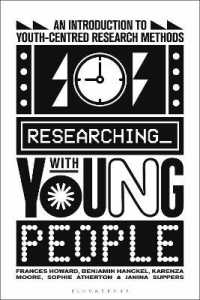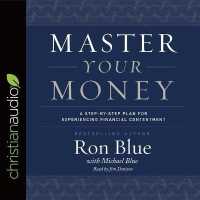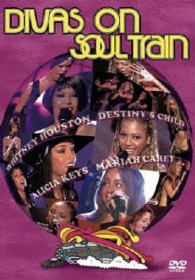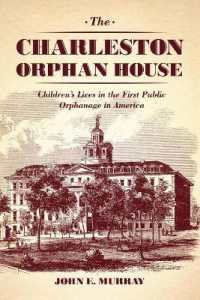- ホーム
- > 洋書
- > 英文書
- > Religion / Ethics
Full Description
In The Qur'an and Modern Arabic Literary Criticism, Mohammad Salama navigates the labyrinthine semantics that underlie this sacred text and inform contemporary scholarship. The book presents reflections on Quranic exegesis by explaining - and distinguishing between - interpretation and explication. While the book focuses on Quranic and literary scholarship in twentieth-century Egypt from Taha Husayn to Nasr Hamid Abu Zayd, it also engages with an immense tradition of scholarship from the classical period to the present, including authors such as Abu 'Ubayda, Ibn 'Abbas, al-Razi, and al-Tabari.
Salama argues that, over the centuries, the Arabic language experienced semantic and phonological shifts, creating a lacuna in understanding the Qur'an and bringing contemporary readers under the spell of hermeneutical and parochial interpretations. He demonstrates that while this lacuna explains much of the intellectual poverty of traditionalist approaches to Quranic exegesis, the work of the modern Egyptian school of academics marks a sharp departure from the programmed conservatism of Islamist and Salafi exegetics. Through analyses of the writings of these intellectuals, the author shows that a fresh look at the sources and a revolutionary attempt to approach the Qur'an could render tradition itself an impetus for an alternative aesthetics—contextual, open, and unfolding.
Contents
Series Foreword
Acknowledgements
A Note on Transliteration and Translation
Introduction
1. A Cartesian Backfire? Taha Husayn, The Qur'an, and the Cogito
2. The Return to Philology and the Unmasking of Traditionalism in Amin al- Khuli
3. Muhammad Ahmad Khalafallah: The Art of Narrative in the Qur'an
4. Bint al-Shati: Literary Significations in the Qur'an
5. Reclaiming Qur'anic Exegesis: Nasr Hamid Abu Zayd between Traditionalism and Postsecularism
6. On Metaphor: Abu Zayd and the Ideologies of majaz in the Qur'an
Conclusion
Bibliography
Index








